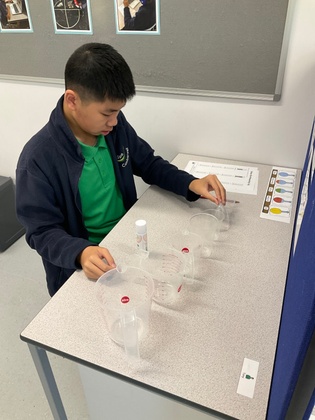
.jpeg)
Maths at Spa Camberwell is functional, purposeful and contextual. Mathematics skills are essential for students to develop independence in their future, as well as developing exploration and investigation skills to understand the world around them. Maths develops inquiry and problem-solving skills which are integrated across all key stages, and support pupils in understanding the world around them.
Maths is split into strands of Number, Shape, Space and Measure and Data Handling. The entire Maths curriculum is underpinned by ‘Using and Applying’ which supports students to use their skills in a range of contexts. Pupil progress in Maths is assessed weekly via our bespoke Spa Core curriculum and teachers record pupil outcomes by creating learning records on our online learning platform.
Core Subjects
There is clear emphasis and direct teaching in Maths. Every pupil will have weekly personalised targets for number. Pupils will be offered a variety of activities best suited to the way they learn.
Learning is structured through three key approaches:
-
The Learning to Learn Curriculum
-
The Learning Together Curriculum
-
The Learning for the Future Curriculum
Pupils will follow elements from one or both approaches depending on their strengths and needs, with a longer-term focus on the preparation for the future.
Learning to Learn
Number is the primary focus to enable students to develop an understanding of the value of numbers. Maths is taught through play and skills-based activities, ensuring that students develop mathematical skills and vocabulary in relevant and meaningful contexts. Daily Maths lessons enable students to build on prior knowledge and consolidate their skills in engaging and enriching play. Students also develop their understanding of shape, space and measure in play and real-life contexts.
Learning Together Curriculum
Students build on their number knowledge and develop a wider variety of Maths skills in all strands of the Maths curriculum, such as shape, space and measure and data handling. 3-4 weekly lessons develop sequential learning through skills-based teaching, followed on with play to provide engaging and role-play contexts. This supports students to apply their skills into relevant contexts and experiences around them to support generalising what they know and applying it in a functional manner.
Learning for the Future
Students develop a deeper understanding of Maths strands in real-life contexts whilst preparing for the future. A deeper understanding of Maths, taught though exploration of concepts and strategies, supports our students to apply their skills in a functional setting. There is a large emphasis placed on using money and time in everyday contexts, such as reading travel timetables and buying items within a set budget. This enables the discrete implementation of explicitly taught mathematical skills in relevant and functional contexts, and supports pupils to apply and generalise their Maths skills.
Skills taught will support students to live and function in their community which supports our aim for students develop a feeling of success and achievement when applying skills in their everyday lives.

